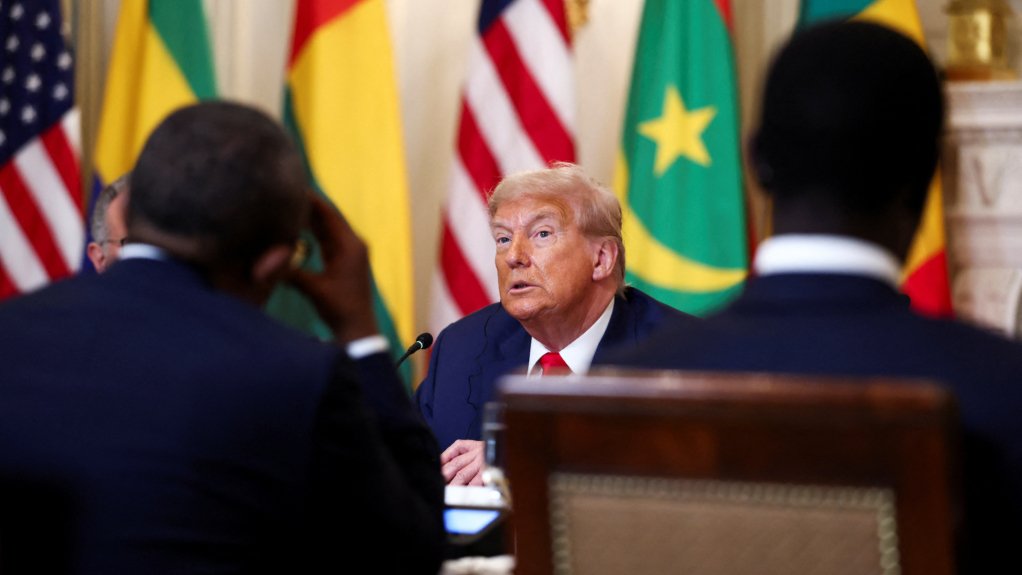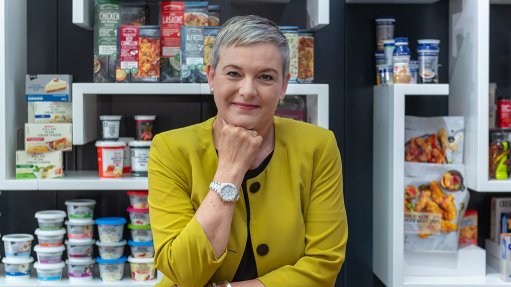African businesses plot Trump-proof path as confidence builds
African nations are starting to adjust to Donald Trump’s new world order and investors are taking notice.
Since returning to the White House in January, the US president has halted most aid to the world’s least-developed continent and imposed hefty import tariffs on a range of its products.
At the inaugural Bloomberg Africa Business Summit in Johannesburg this week, political leaders, diplomats and executives weighed in on the sweeping implications of Trump’s second term for Africa’s economic future. They concluded that nations across the continent are responding by attempting to diversify export markets and redirecting spending — with Ghana, Zambia, Kenya and South Africa among those boosting local production, encouraging local industries and improving power and other infrastructure.
“There are massive opportunities that are presented by the rest of the African continent,” Kenny Fihla, chief executive officer of South African lender Absa Group, said at the summit. The lender is on the lookout for deals outside its home market to build its regional footprint, he added.
JPMorgan Chase & Co. is also beefing up its presence, upgrading its license in Nigeria and opening representative offices in Kenya and the Ivory Coast.
“I like what we are seeing in this country and other countries in the region,” Vice Chairman Daniel Pinto told the summit, which was held in the leadup to this weekend’s gathering of leaders from the Group of 20 nations — a sentiment echoed by several top executives.
The pickup in investor interest is evident in the financial markets. Ghana’s stock market ranks as the world’s best performer in dollar terms this year, followed closely by Zambia’s.
South Africa’s benchmark stock index is on track for its best year since 2006, while government bond yields have fallen sharply. S&P Global Ratings last week lifted South Africa’s credit rating for the first time in 20 years following a better-than-expected budget update.
That’s despite Trump falsely accusing Pretoria of subjecting White Afrikaners to a genocide and seizing their land. The US president is skipping the G-20 meeting, saying South Africa doesn’t belong in the group.
Trump this month also warned of possible military action in Nigeria, which he says has failed to halt the systematic killing of Christians. Days later, Africa’s biggest oil producer raised $2.35-billion in the international bond market to take advantage of lower lending costs.
Despite the good news, there are real concerns about the long-term impact of the US trade war and disengagement from Africa, with the viability of the automotive and textiles industries under serious threat. There’s also concern about infrastructure bottlenecks that could stymie moves to boost intra-Africa trade.
“It’s going to be a grind,” Stanlib Asset Management CEO Derrick Msibi said at the conference. “Can we finally solve the issue of the infrastructure backlog? That’s not going to happen overnight,” he said specifically about South Africa.
Washington’s funding pullback has already proved disastrous for some of Africa’s poorest citizens, with numerous humanitarian programs having been shut or scaled back, and thousands of workers losing their jobs.
Yet Jonathan Oppenheimer, founder of Oppenheimer Partners and scion of the family that built Anglo American and De Beers into global mining powerhouses, said the business environment in Africa remains positive, with his investments generating healthy margins.
And South Africa’s Public Investment Corporation, a state-owned fund manager that oversees R3-trillion of assets on behalf of state workers, is exploring new opportunities elsewhere in the continent, according to its CEO Patrick Dlamini.
“There are massive opportunities, both on the industrialisation side as well on infrastructure,” he said. “We are saying to sovereign wealth funds ‘come to the continent, we will partner with you.’”
Article Enquiry
Email Article
Save Article
Feedback
To advertise email advertising@creamermedia.co.za or click here
Announcements
What's On
Subscribe to improve your user experience...
Option 1 (equivalent of R125 a month):
Receive a weekly copy of Creamer Media's Engineering News & Mining Weekly magazine
(print copy for those in South Africa and e-magazine for those outside of South Africa)
Receive daily email newsletters
Access to full search results
Access archive of magazine back copies
Access to Projects in Progress
Access to ONE Research Report of your choice in PDF format
Option 2 (equivalent of R375 a month):
All benefits from Option 1
PLUS
Access to Creamer Media's Research Channel Africa for ALL Research Reports, in PDF format, on various industrial and mining sectors
including Electricity; Water; Energy Transition; Hydrogen; Roads, Rail and Ports; Coal; Gold; Platinum; Battery Metals; etc.
Already a subscriber?
Forgotten your password?
Receive weekly copy of Creamer Media's Engineering News & Mining Weekly magazine (print copy for those in South Africa and e-magazine for those outside of South Africa)
➕
Recieve daily email newsletters
➕
Access to full search results
➕
Access archive of magazine back copies
➕
Access to Projects in Progress
➕
Access to ONE Research Report of your choice in PDF format
RESEARCH CHANNEL AFRICA
R4500 (equivalent of R375 a month)
SUBSCRIBEAll benefits from Option 1
➕
Access to Creamer Media's Research Channel Africa for ALL Research Reports on various industrial and mining sectors, in PDF format, including on:
Electricity
➕
Water
➕
Energy Transition
➕
Hydrogen
➕
Roads, Rail and Ports
➕
Coal
➕
Gold
➕
Platinum
➕
Battery Metals
➕
etc.
Receive all benefits from Option 1 or Option 2 delivered to numerous people at your company
➕
Multiple User names and Passwords for simultaneous log-ins
➕
Intranet integration access to all in your organisation





















